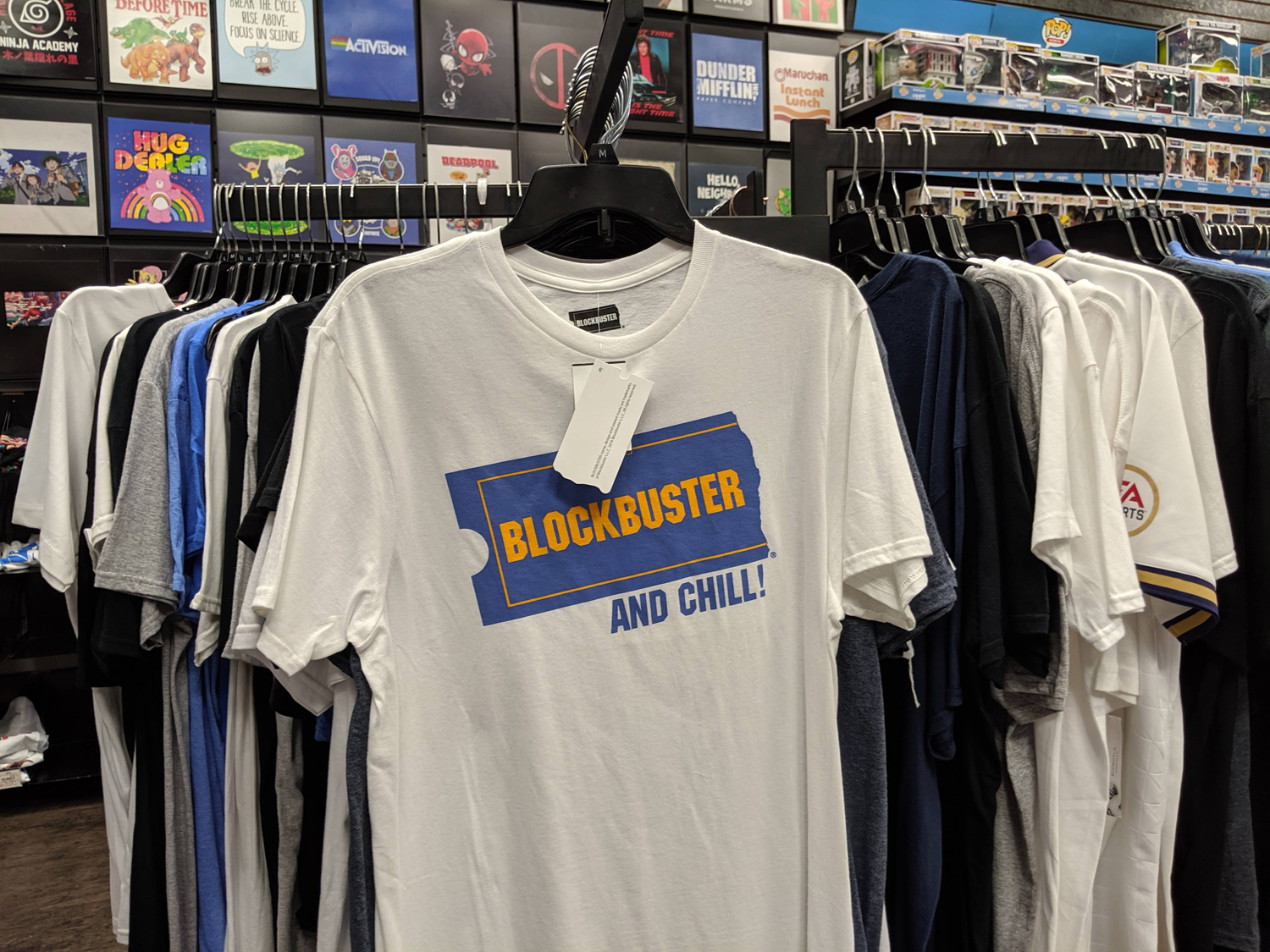- GameStop is the largest video game retailer in the world, with over 5,000 stores.
- The company had been in steady decline for years, but the bottom has dropped out of its stock price in 2019 – from $16 a share in January to just $4 by late July.
- The company is “a melting ice cube,” Wedbush analyst Michael Pachter told Business Insider earlier this year. “For sure it’s going to go away eventually.”
- We visited a handful of GameStop stores in New York City, and it was evident why the company is failing.
- GameStop representatives did not respond to a request for comment as of publishing.
- Visit Business Insider’s homepage for more stories.
When I was growing up in the late ’90s, entertainment retail titans like Tower Records, Sam Goody, Waldenbooks, and Blockbuster Video were all, already, on the way out.
Their decline was clear to everyone: First, they’d start selling stuff that wasn’t quite in their wheelhouse. Then the stores would start shuttering. Then the remaining stores would get messier and messier as staff saw the writing on the wall. Then, eventually, they would shutter forever.
Two decades later, and the world’s largest video game retailer – GameStop – is going through the same process that record stores, movie stores, and book stores have already endured.
On a muggy summer Wednesday in New York City, we went on a tour of several GameStop stores for a look into a retailer in decline.
In a city like New York, where real estate comes at such a high premium, GameStop has over a dozen outlets spread across the five boroughs.

There are, simply put, too many GameStop locations in New York City. Some are clustered so close together that you can easily walk from one to the next.
None of the four stores I visited, across Manhattan and Brooklyn, had more than a few people in them at any given time.
All of this would be problematic in a less expensive place than New York City, but it's especially problematic given that. Notably, GameStop does not operate on a franchisee model - the company is leasing each outlet itself.
Moreover, GameStop stores are shockingly huge — needlessly so considering they're in the business of selling small circular discs in small rectangular boxes.

The vast majority of the stores are made up of empty space, as the primary item on sale — games — line the walls. There are various sales islands set up, but much of the GameStop retail experience is vast open spaces.

Without fail, each store also had a haphazardly set up clearance table with cardboard boxes full of stuff.

A similar setup was used at a store in Brooklyn, like something out of a flea market:

Since 2015, GameStop has owned ThinkGeek — it's like Hot Topic, but focused on geek culture stuff like anime, video games, and superhero movies. A large chunk of each store I visited was dedicated to this stuff.

That stuff now litters every GameStop store.

Though these pop culture items are tangentially related to gaming — they're both part of "geek culture" — they do little for the store's appeal. And they often look messy.

The biggest problem of all, though, wasn't what was in the store — it's what wasn't.

Every game released on an Xbox One, PlayStation 4, or Nintendo Switch is available on their digital storefronts. But not every game sold on those digital storefronts is published on a disc.
GameStop sells games on discs. It's their primary business - specifically used games on discs.
You can buy gift cards for digital games, but there's no way to buy any of the hundreds of games sold only through digital storefronts like PlayStation Network, Xbox Live, Nintendo's eShop, and Steam. There is no used market for digital games, because they're just codes. There is no physical disc to sell.
And that's a huge problem for GameStop.
"I definitely think it's a melting ice cube," Wedbush analyst Michael Pachter said of GameStop's disc-based business model. "For sure it's going to go away eventually. And for sure their future will be truncated and eliminated the day that discs stop being manufactured."
There's some good news for GameStop: The next generation of game consoles is coming in 2020, and that means GameStop will likely last for at least another several years.

GameStop's currently in the process of making over its executive team. It's got a new CEO, and it's got a slight extension of life granted by Microsoft and Sony - both companies are making new game consoles that will still run game discs (in addition to digital-only games).
"They just got a seven-more-year reprieve starting in 2020," Pachter said. "GameStop's got about 10 years before that ice cube is fully melted."
In the meantime, the company's vast network of stores will assuredly shrink. The company has already started scaling back on its ThinkGeek push - items have been integrated into existing GameStop stores, and standalone ThinkGeek locations were shuttered.
How long GameStop will last is another question altogether.

When stores like Tower Records and Borders were on the way out, it was hard to tell how long they had left. Such is the case with GameStop as well.
All the signs are certainly there: Questionable business decisions, the introduction of unrelated sales items, and a business model that's firmly locked in an era that's ended.
But GameStop also provides a major value to millions of people: The ability to trade in video games that might otherwise just languish on a shelf collecting dust.

Customers trading in their games, and GameStop turning around and re-selling those games, remains the cornerstone of the company's business.

On my tour of GameStop stores, I brought two games to see what the company would give me: "Call of Duty: WWII" and "Street Fighter 5: Arcade Edition."
The total amount offered for both games, whether we're talking about store credit or straight-up cash, was $7 - $2 for the former, and $5 for the latter.
As the GameStop store associates said to me in each instance where I asked, I would get more money for the two games by selling them online. But what if you're a 15-year-old, and you just want to get the next "Pokémon" game? That's $7 towards "Pokémon"!
It's not a lot, and it's certainly less than the actual value of both games, but it's a lot more than the zero dollars in value both games provide while sitting on a shelf.
Used record stores also used to exist. Now they don't. That is the issue that GameStop is facing.

When I was growing up in the '90s, it was pretty common for used CD stores to exist. They worked exactly like you think: You could trade in your old CDs for money or store credit.
It is exactly the same business model employed by GameStop, albeit on a much larger scale.
The eventuality for used record stores was clear as Napster, then iTunes, then Spotify and others fundamentally altered the way most people interact with music. Why buy a record when you can access a service with every record? Why buy a physical disc when you can buy it digitally?
This the same transformation currently happening to the video game industry, and it's this reality that GameStop is facing down.
GameStop representatives did not respond to a request for comment as of publishing.

